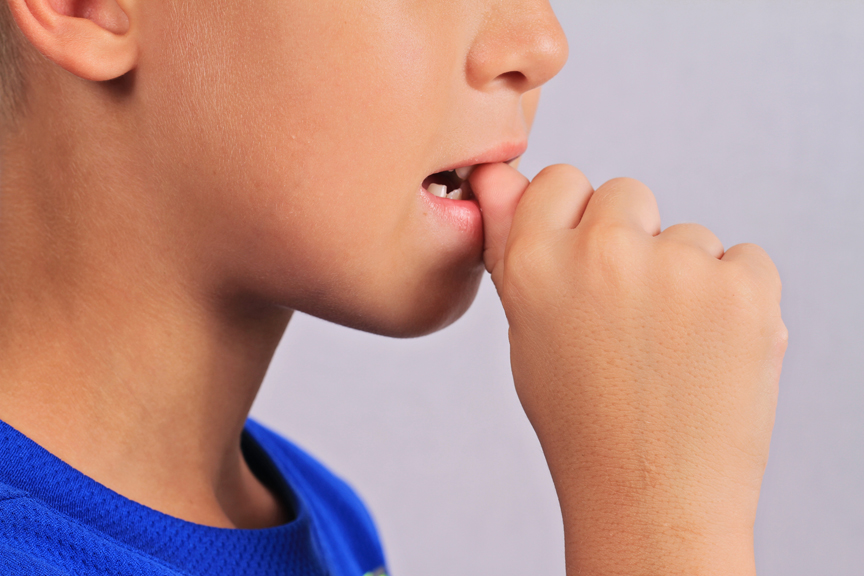- Behavior
- Health
- Parenting
Your child’s bad habits usually nothing to fear, so be patient

In this article, you’ll find answers to questions like:
1. Is it just a phase?
2. When to intervene?
3. How to break bad habits?
Is your child still wetting the bed?
Well, don’t worry about it too much, says Dr. Chris McGinnis, a psychologist and founding clinic director at Boys Town South Florida.
Ten percent of children still wet the bed at age 10. “All bed-wetting resolves on its own over time, so the question is when is the family ready to address it?” he says.
Habits such as bed-wetting and whining seem like a rite of passage, though it’s perplexing for parents.
1. IS IT JUST A PHASE?
“Most of the time, these behaviors are just phases or habits — not serious medical problems — and the child typically outgrows them,” says Kathryn Tancig, assistant manager of Healthy Families, a program of Families First of Palm Beach County.
However, Tancig advises concerned parents to contact their pediatrician. “Yelling, calling attention to the habit and punishment do not usually work to stop the behavior, but praising the absence of the behavior, using positive rewards and patience are likely to help,” she says.
2. WHEN TO INTERVENE?
McGinnis agrees these habits don’t necessarily signal something is wrong. However, it’s time to act if your children start hurting themselves. And sometimes a behavior can be indicative of a greater issue, such as neurodevelopmental disorder.
Don’t worry about thumb-sucking until age 5, says McGinnis, who echoes Tancig on providing positive reinforcement by praising the child when they’re not engaged in the habit. “It can be a powerful behavioral shaping tool,” he says.
Quality sleep is the key, he says. It boosts cooperation and overall functioning. “Once we help improve sleep and cooperation, then we move on to other concerns like picky eating, problems with the homework routine, anxiety, bad habits, bed-wetting and others,” he says.
3. HOW TO BREAK BAD HABITS?
- Calmly explain what you don't like about the behavior and why. This approach can be used to help increase awareness of the problem. Say something like, "I don't like it when you bite your nails. It doesn't look nice. Could you try to stop doing that?" The next time it happens, don't scold or lecture. Punishment, ridicule or criticism could have the opposite effect by causing the behavior to increase.
- Involve your child in the process of breaking the habit. If your child is crying from being mocked over a habit, understand this is a way of asking for help. Parents can ask their children what they think they could do to stop the habit or if they want to stop the habit. Brainstorm ways to break the habit together.
- Suggest alternative behaviors. For example, if your child is a nail-biter, say, "Let's wiggle our fingers," instead of "Don't bite your nails." This will increase awareness of the habit and may serve as a reminder. To occupy your child's attention, provide a distraction, such as helping you in the kitchen or working on a craft.
- Reward and praise self-control. For example, allow your little girl to use nail polish if she lets her nails grow instead of biting them off. Giving stickers or a small prize is another way to reinforce praise.
- Be consistent in rewarding good behavior. If you fail to notice good behavior, it will disappear over time. The new positive habit must be firmly established before the old one will disappear.
- Be patient. It takes time for the alternative behavior to replace the bad one. For the best success, motivate your children to break the habit.
SOURCES:
• Dr. Chris McGinnis, founding clinic director, Boys Town South Florida
• Kathy Tancig, Healthy Families assistant manager, Families First of Palm Beach County
• KidsHealth.org
You May Also Like
-
- Education
- Health
- Parenting
Your 5- to 8-year-old sleeping enough? And how does it help?
Ten to 13 hours a day, including naps, are recommended for 5-year-olds, while 6- to 8-year-olds should get from nine to 12 hours. Read on for more expert sleep advice. …
Read More -
- Other
- Parenting
- Things to do
BLOG: Sharpen your minds together with local, artsy events
Art has a profound impact on children's lives. It can boost academic performance, give kids an outlet to express themselves and help families bond. Read on to learn what Palm Beach …
Read More -
- Education
- Parenting
- Things to do
Your child can entice other kids to read. Here's how . . .
There are a lot of ways kids can help other children learn to read while improving their own skills at the same time. Here are some tips . . . …
Read More
Related resources
-
- Behavior
- Health
- Parenting
Boys Town South Florida
Based in West Palm Beach, support, services and information for at-risk children and their families in South Florida
561-612-6000 Website -
- Health
- Parenting
- Safety
Families First of Palm Beach County
Healthy Families Florida – in-home parent support and coaching program for pregnant women and families with newborns to reduce the risk of child abuse and neglect.
561-721-2887 Website Email -
- Behavior
- Parenting
Center for Family Services of Palm Beach County
Positive Parenting Program, known as Triple P, offers free seminars and one-on-one guidance to help families improve the parent-child relationship
561-616-1222 Website Email -
- Behavior
- Parenting
Community Partners
Positive Parenting Program, known as Triple P — free seminars and one-on-one guidance to help families improve their parent-child relationships
561-841-3500 Website Email
